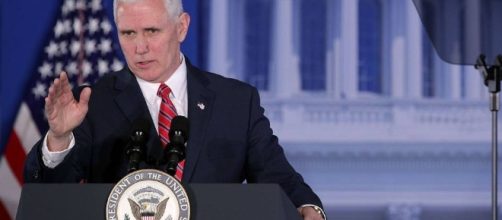NASA presented its 2017 class of astronauts at a ceremony at the Johnson Spaceflight Center south of Houston, Texas. The new astronauts, half men, and half women, come from a variety of military, academic, and commercial backgrounds. Unique among such presentations in recent years, the ceremony was attended by various public officials, including Texas Gov. Gregg Abbott, Sen. Ted Cruz. R-Texas, and Vice President Mike Pence. Pence made a welcoming speech that was mainly platitudes and did not reveal much new information. But the vice president’s address did add official confirmation to what is being reported about the Trump administration’s space policy.
The White House Space Council is going to be announced 'soon'
Pence, in his remarks, mentioned that the White House Space Council, moribund since the end of the first Bush administration, would be announced shortly. The space council would gather representatives from various government departments and agencies, including NASA and the military, to coordinate space policy. A space council helped to guide America to the moon and was disbanded by President Richard Nixon in 1973. The council was revived in 1989 by President George H. W. Bush to help coordinate the Space Exploration Initiative but was disbanded again by President Bill Clinton. President Barack Obama promised to revive the space council a second time, but that was one of the many promises that he left unfulfilled.
When President Trump revives the space council, to be chaired by Vice President Pence, it will apparently include members from the commercial sector.
The next footsteps on the moon and Mars
Pence, along with Acting NASA Administrator Robert Lightfoot, strongly suggested that among the new class of 12 astronauts will be the people who will be the next to walk on the moon and Mars. The new astronauts are primarily in their thirties, so if NASA deep space exploration proceeds as many people think, that prediction is a sound one. The new astronauts will be either in the 40s or even still in their 30s when Americans return to the moon. Most will be in their early 50s when the first people travel to Mars, according to current NASA planning.
NASA will also conduct its missions with “increased cooperation” from the commercial sector.
Pence promises that NASA will get the resources it needs to explore space
The vice president also promised that NASA would receive the funding it needs to explore deep space. The promise runs somewhat contrary to the 2018 budget proposal that cut NASA funding. The two are difficult to reconcile. Fortunately, congress is likely to be more generous in the final appropriations bill.


